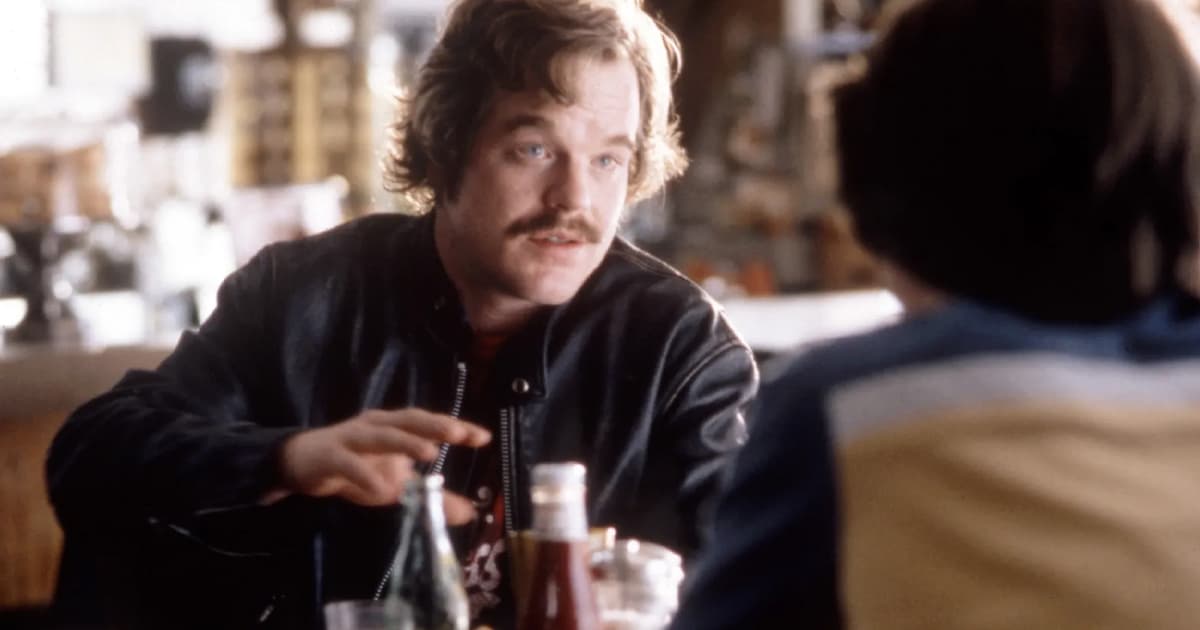We remember Philip Seymour Hoffman on the 10th anniversary of his death by remembering some of his best performances.
I remember exactly where I was when I discovered Philip Seymour Hoffman had died. I was at a revival screening of the 1979 version of Battlestar: Galactica at a Montreal theatre, waiting for the film to start when my email blew up. Here at JoBlo, whenever an icon dies, it tends to become a thread that allows us all to vent a little, and Hoffman’s death destroyed many of us.
It shook me up in a lot of ways, as I had just seen him at the Sundance Film Festival a few weeks earlier, where he had two films, A Most Wanted Man and God’s Pocket. In hindsight, it’s easy to say he didn’t look quite right, but honestly, I had no clue anything was wrong with him. Of course, in the days following his death, we learned that addiction had taken its toll on perhaps the most outstanding actor of his generation, leaving a bereaved family behind.
It’s incredible to think Hoffman has been gone for a decade now. Meanwhile, his son, Cooper Hoffman, is all grown up and leading movies of his own, such as Paul Thomas Anderson’s Licorice Pizza. Rather than dwell on his death, let’s take this opportunity to appreciate his work. Here’s a list of what I think are his five best performances, and it would be very, very cool if everyone reading this chimed in with their favourites in the talkback.
So, without any further adieu, here are my favorites:
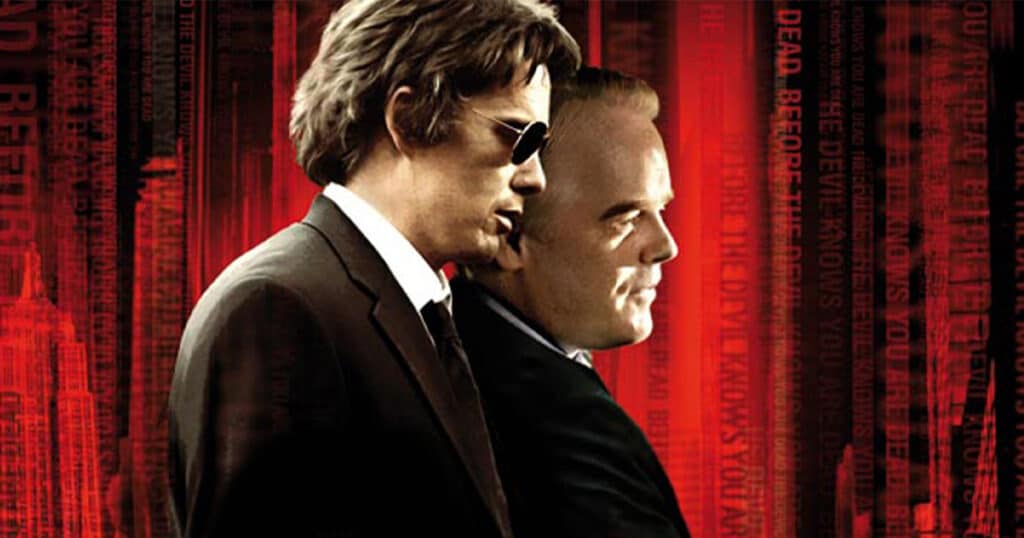
Sidney Lumet’s last movie was one of his best, thanks to four great performances by his leads – Ethan Hawke, Marisa Tomei, Albert Finney, and Philip Seymour Hoffman. In it, Hoffman and Hawke play brothers who conspire to rob the jewelry shop owned by their parents, with the robbery leaving their mother dead and their bereaved father seeking revenge. Hoffman plays a desperate addict who goes from being a white-collar criminal to a die-hard killer by the time the credits roll, delivering a chilling (and oddly empathetic) performance, making his monster all too human.
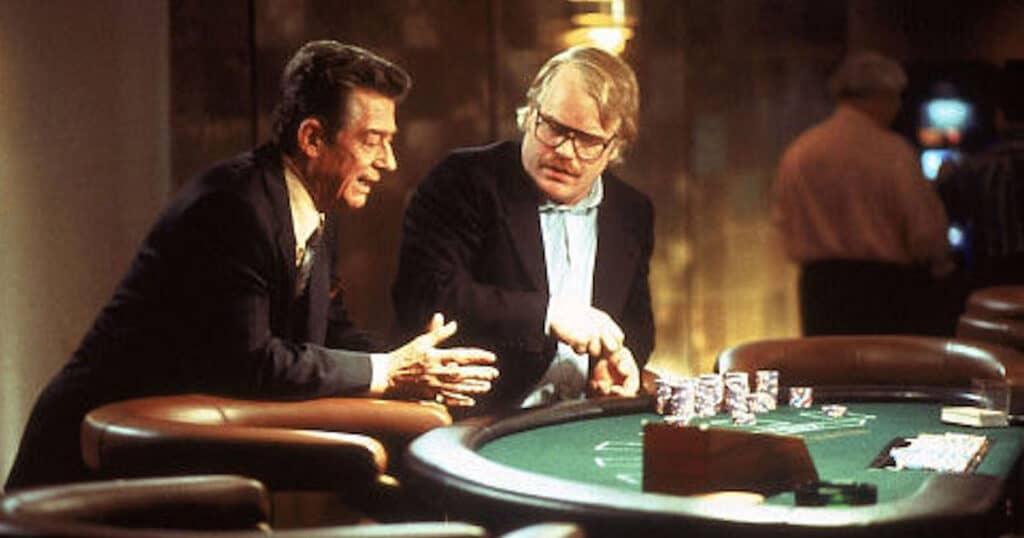
Owning Mahowny:
This little-seen Canadian drama gives Hoffman a rare leading role (he typically played supporting roles) in a wild true story. In it, he plays a bank executive who embezzles money he uses to gamble, eventually running up a $10 million tab. Two other great character actors who have since passed away have excellent roles in this, with Maury Chaykin playing his bookie, while John Hurt is a satanic casino manager.
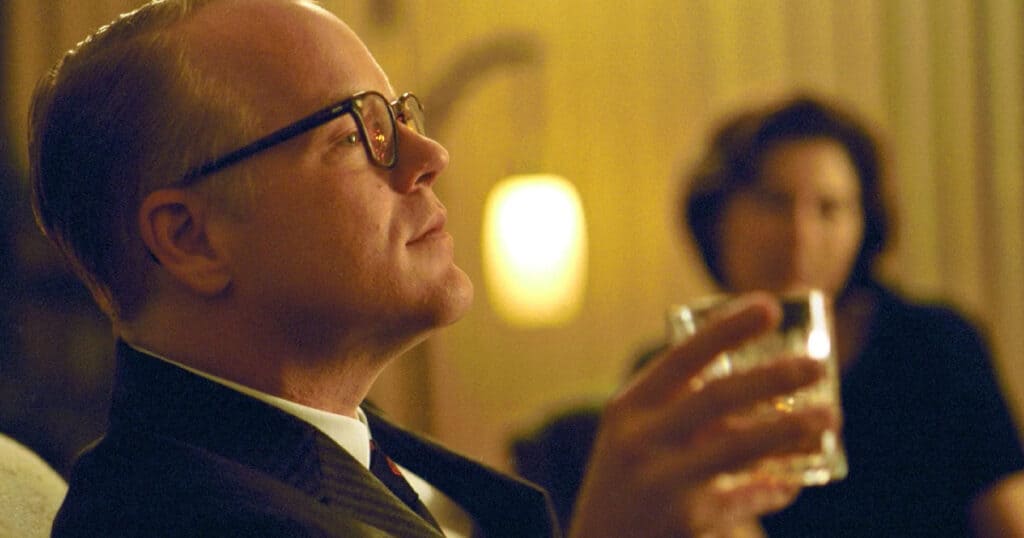
Capote:
Hoffman won an Oscar for playing Truman Capote in this biopic charting the fraught time in the author’s life when he wrote: “In Cold Blood.” Many play Capote as a caricature, but Hoffman didn’t overly concern himself with delivering an uncanny physical portrayal. Instead, he found the man’s soul, and the result is perhaps a career-defining performance. Ironically, whenever I think of Capote, I now picture Hoffman rather than Capote himself. It’s strange how that happens sometimes.
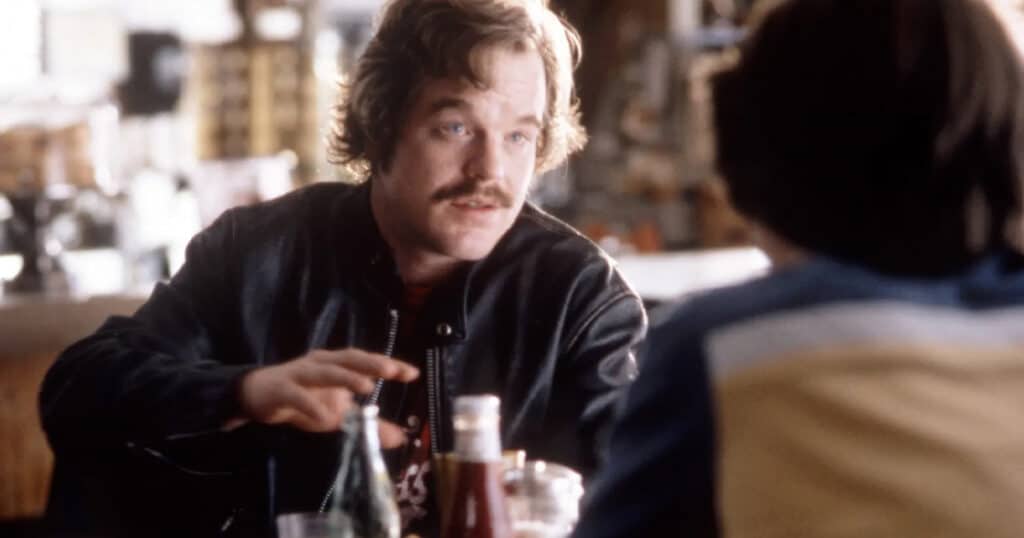
Almost Famous:
In Hoffman’s character roles, quantity wasn’t king – it was quality. He doesn’t have much screen time in Cameron Crowe’s rock n’ roll masterpiece but is superb as real-life rock critic Lester Bangs. In the film, he’s the cynical rock journalist who mentors the surrogate Crowe character at the movie’s heart. Hoffman was ill with the flu the whole time he shot the film, but you’d never know.
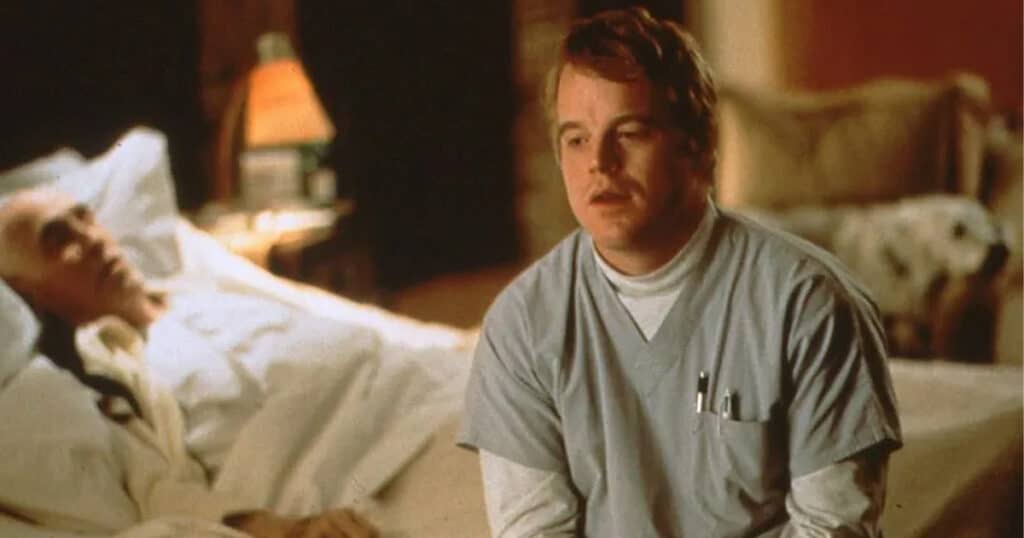
Magnolia:
Honestly, I could have had every movie Hoffman did with PT Anderson on this list, but it wouldn’t have done a great job digging into the scope of his career. Instead, I’m picking my favorite performance of his in an Anderson film, with him never warmer than as the caregiver Phil Parma, who desperately tries to help his employer (Jason Robards in his final role) reconcile with his long lost son, who happens to be Tom Cruise’s iconic Frank “T.J” Mackay. Hoffman and Cruise play brilliantly off each other – so well that Cruise reused him (to significant effect) as the villain in my favorite Mission Impossible movie.
Now it’s your turn. What are your favorite Philip Seymour Hoffman performances? Let us know in the comments.

